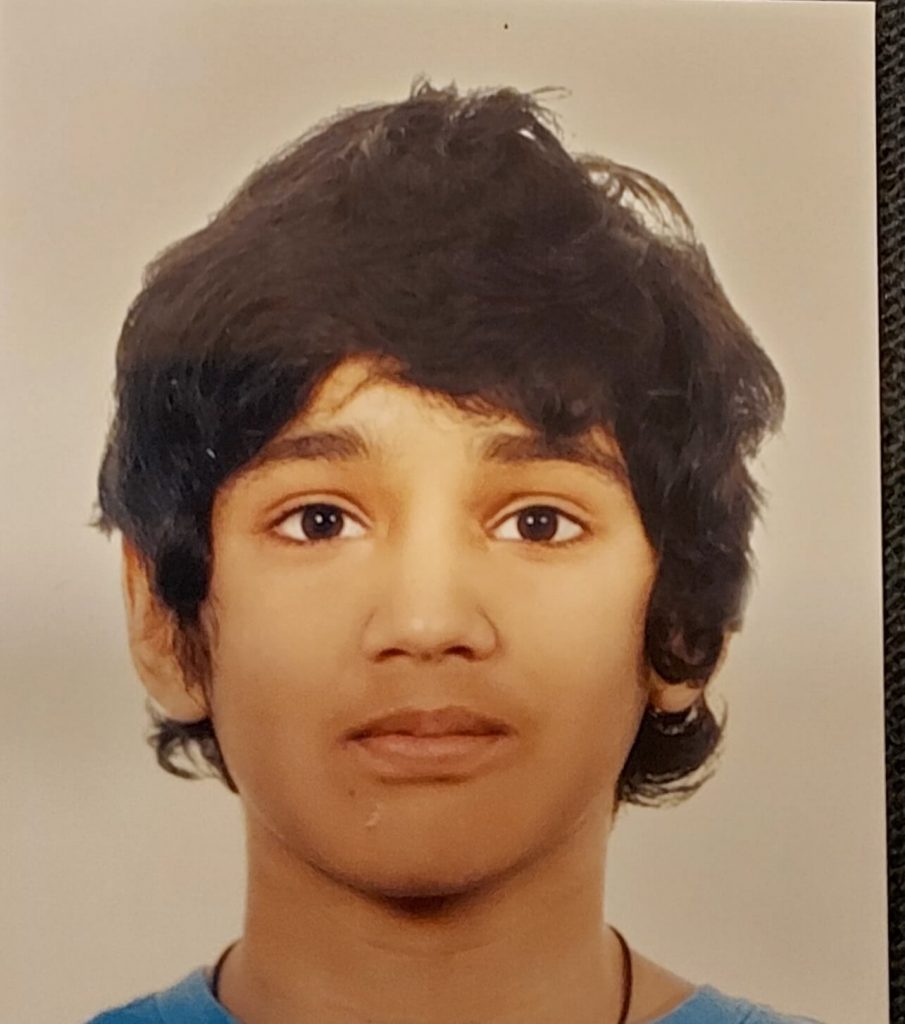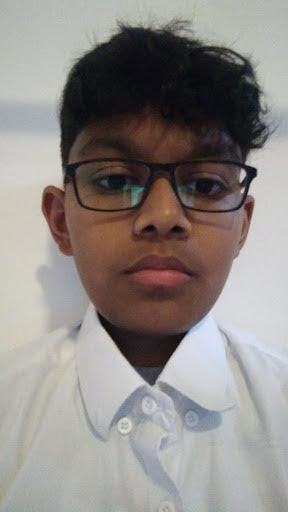Our Schools
Table of Contents
The teenage years, or the years between the ages of 13 and 19, are a time of growth and struggles. Coping with the stress of internal and external struggles, like puberty, hormonal changes, peer and parental pressure, academic performance, social acceptance, health issues, etc., are some of the common aspects of being an adolescence. In addition to this, teens also feel the need for constant acknowledgement & validation of their feelings, ideas, and thoughts.
Many contemporary factors govern teenage problems, such as a fast-paced lifestyle, inadequate education, the lack of proper mentorship or parental guidance, social unawareness, etc. Early identification of developmental problems (like anxiety and depression in students, ADHD, learning disabilities, etc.) can help make the teen years easier. However, some teenage social problems require research, deeper discussion, effective mentorship, and a socially supportive environment. We’ve highlighted some in the next few paragraphs.
1) Lifestyle Problems:
- Substance Abuse
Unsupervised exposure to the high-end celebrity lifestyle, poor guidance & parental supervision, and the easy availability of drugs, alcohol, or tobacco lead to substance abuse, one of the most common teenage problems. Despite strict regulations on underage drinking and prescription drug use, teens find a way to consume addictive substances, often because they’re unaware of their risks and seek temporary escape from the harsh reality around them.
- Hormonal Issues
Poor diet planning and inactive lifestyle can lead to several hormonal issues that may result in mild or moderate health problems. E.g., acne, diabetes, PCOS, nutritional deficiency, obesity, etc.
- Depression
There could be multiple reasons behind depression in students. E.g., persistent health issues, obesity, inability to perform well, sexual abuse, etc. Depressive disorders have been around for a while, but they’ve recently gained attention after the pandemic. Insomnia, eating disorders, social isolation, poor performance, disinterest, and other symptoms of depression are common. They can be treated with timely diagnosis, counselling, and medical treatment.
2) School/Study Problems:
- Learning Disabilities
ADHD, dyslexia, dysgraphia, dyscalculia, and autism spectrum diseases, etc., are disorders that affect students’ ability to understand concepts.
- Academic Stress
Fear of examinations, a poor study schedule, difficulty managing time and routines, an inability to stick to deadlines, unhealthy competition among students, etc. cause academic stress. Stressed students may often find it hard to perform well in their classes due to performance anxiety, even though they’ve got the skill and aptitude to excel.
- Poor Concentration & Lack Of Mindfulness
Stress, environmental distractions, fleeting thoughts, a poor learning environment, and ineffective pedagogies followed at school cause students to lose focus, thus causing disinterest in studies.
3) Social Problems:
- Peer Pressure
Peer pressure, which has adversely affected teenagers for several generations, has become a serious issue due to the advent of social media. For instance, children are often compelled to copy a certain lifestyle (like partying, bunking classes, etc.) just because their close friends are doing it. Poor decision-making due to peer pressure may have life-threatening consequences. E.g., school bullying, unprotected sex, substance abuse, suicide, etc.
- Parental Pressure
When parents set unclear or unrealistic expectations for academic success, performance standards, social behaviours, and family rules, they unintentionally cause emotional stress. Although this pressure comes out of concern for the child’s future, it hampers their present well-being and choices.
- School Bullying & Violence
Instances of school bullying have become more prevalent due to social media usage. Although instances of violence may have declined due to the strict regulations followed at school, it can’t help prevent shaming, labelling, or cyberbullying. If left unchecked, it could cause lifelong trauma to the victims.
4) Problems Resulting From Poor Choices
- Cyber Addiction
Cyber addiction (social media addiction and excessive screen abuse) may result from disinterest in offline activities, a preference for convenience, and poor adult supervision.
What Are The Solutions?
As adults, the best way to solve teenage problems is to monitor, mentor, and educate kids; set realistic expectations; and enforce strict discipline, wherever necessary. Here are some prospective solutions.
1) Early identification of developmental problems (like hormonal issues, depression, anxiety, etc.) can help control them. Watching out for the signs like insomnia, eating disorders, disinterest, social isolation, poor health & lifestyle, dropping grades, bad company, etc., and being vigilant to prevent further damage can help teenagers.
2) Understanding & Acknowledging Teenage Transitions
It’s crucial for adults to acknowledge teens’ feelings and address their concerns or doubts without being insensitive, judgmental, or overly critical towards them. Teens may often find it hard to express themselves because they don’t trust adults to understand them. Defiant behaviour is a direct consequence of strict parenting or a lack of proper parental guidance and understanding, which produces insecurity, negative feelings (confusion, jealousy, anger, etc.), and dislike towards adults. Thus, it is important for carers to listen to children, provide honest & constructive feedback, and value their child’s need for privacy, when required.
3) Generating Awareness
Many times, children are unaware of the ill-effects or life-threatening consequences of particular activities like substance abuse, unprotected sex, school bullying, etc. Educating them about the bad consequences, providing them with better and healthier ways to solve a crisis at hand, and mentoring them are the best possible ways of educating teens.
4) Having Direct & Transparent Communication
Clear, transparent, constructive and open-ended conversations strengthen the adult-teen bonds by making children feel safe to express their feelings or talk about complicated experiences like abuse, bullying, sexuality, etc. Unless we build trust, respect, and acceptance with proper words, we can’t make teenagers understand our viewpoint. Enforcing punishments and rules without explaining the causes, consequences, or alternatives will only make it worse.
5) Offering Medical & Social Help
We must understand that not all problems can be solved by parents and teachers. There are experts like counsellors, doctors, etc., who offer better solutions for the physical and mental well-being of students. We shouldn’t hesitate to seek outside help if it helps our child.
Did you know? Approximately 10 to 20% of a child’s waking hours are spent at school. Schools play a crucial role in shaping the formative and teen years of an individual. Thus, choosing a good school has become more critical today. If you’re looking for the best CBSE Schools in Bangalore or the best ICSE Schools in Bangalore that create a safe, welcoming, nurturing, and socially productive environment for your child, you have landed in just the right place. Ekya Schools, one of the best schools in Bangalore, offers adequate guidance, coucelling sessions, educator support, and education to help young minds navigate through the complexities of the teenage years. Click here to know why it is the best choice for your teenager!
#StudentBlogger: Career Camp 2023 By, James Joseph Grade 9, Ekya School, Byarathi
We bustled through the uniform staircases of CMR NPS, chattering amongst each other about how the Talks would be. Finally, we reached the auditorium, scanned the familiar place, and scouted across the sea of students for a place to sit. We were indeed late, but we made sure not to create a distraction and soon found seats in the back.
An expert speaker from Plaksha University and LaSalle College welcomed us into the first section of our eventful day. Both universities made sure to entice us with their benefits and painted a picture in our minds of our typical day in their college. Smiling and reconsidering our options for college, we awaited the next part of our day, Resume Building.
The resume-building activity started with the expert speaker introducing us to the generic format of writing resumes; she made sure to inform us what to write, what not, and how to phrase your achievements in a way that convinces the receiver to ‘draft’ you. After a quick question-answer session, she bid us good luck and farewell.
The third part of our day was with a professional architect and doctor; this, by far, was my favourite part of the day, as they gave a glimpse at their life and an insight into how they reached the position they are in now and why they decided to pursue their ambitions and passions. They motivated us to go out there, find our love, follow it, take advice from those around us and always have a second perspective on such life-changing decisions. They gave us informative advice that I will imbibe in my life.
They all split into pairs in the last session and visited different workshops. We were presented with various options for spending our last few hours; we were all scratching our heads; so many good options….Ravinder Koushik, Manoj Kumar Agrawal, Dolly Nihalani Desai, Gaurav Madan, Sheetal Soni, and Deepthi Naik. After debating the possibilities for a long while, I chose the Internationally acclaimed filmmaker Gaurav Madan. He provided information on how to go ahead with a filmmaking career and what not to do. Although I do not have any particular interest in the topic, I always wanted to keep my choices open, so this session was definitely with it.
Thinking Global Education? Here Is Why Ekya Schools’ IGCSE Program Is Best For Your Child!
A Brief Overview Of Education At Ekya Schools
The two-year course aligned to the Cambridge IGCSE board is offered to students in grades IX and X at Ekya School JP Nagar and Ekya School Byrathi campuses. The coursework includes theoretical concepts as well as skill-building projects & assignments conducted throughout the year for formative assessment of students' learning. The summative assessment or subjective final examination (like other boards) is scheduled at the end of grade X. The IGCSE curriculum is flexible, personalised, and differentiated in terms of choice of subjects. The subjects offered to students include:- Languages (Any two subjects to be chosen): First language- English (Extended), Second language- Hindi & French
- Humanities & Social Sciences: History, Civics, Geography, Economics
- Sciences: Physics, Chemistry, Biology
- Mathematics: Mathematics – Extended
- Creative, Technical & Vocational Courses: Computer Science (Extended)
Why Ekya International School, Bengaluru?
Ekya Schools is unique from the rest of the best IGCSE schools in Bangalore because:- We are backed by a team of skilled, seasoned, and visionary educators passionate about teaching and learning. The educators model skills and values like excellence, commitment, dedication, integrity, etc. for students to understand and internalise in their lives. We bring unique and engaging experiences into the classrooms to help students not only master textbook concepts but also extend their learning beyond the classrooms. The ongoing professional development programmes at the school allow educators to update their knowledge, skills, pedagogies, and classroom management techniques with time, as per the learners' requirements.
- We create advanced learning areas to nurture students' curiosity & imagination and engage their interests in learning. Besides the classrooms, the school has dedicated spaces for sciences, robotics, sports, visual & performing arts, where students can hone their skills.
- We ensure academic excellence by creating opportunities for students to participate in collaborative skill-building activities. E.g., reading, robotics, sports, visual & performing arts (like music, dance, theatre), MUN, Hour of Code, etc. The knowledge and skills gained through these programmes are utilised by students to excel in their mainstream subjects.
- We offer exceptional learning experiences & international exposure. Ekya Schools live by the mantra of "Living the Lessons''. The lessons and assignments are thoughtfully designed to reflect recent happenings around the world, whereas outbound learning initiatives (excursions, virtual trips, etc.) enhance the global exposure and awareness of various cultures. The school's "Work Exposure Programme" offers students first-hand experience of various professions and industries through summer internships.
- We prepare students to make a positive difference to the world through service. Ekya Schools’ “Design Thinking Challenges” & “Service Learning Initiatives” allow children to immerse themselves in a socially relevant problem, thus making efforts to give back to the community.
- We deliver results that are higher than the global average. As one of the best schools in Bangalore, Ekya has a track record of producing exceptional student learning outcomes, as evident by the results of board examinations, olympiads, national/international competitions, etc.
- We offer career support through the CCG (College & Career Guidance) programme. It was introduced with the objective of helping students acquire information to choose the best academic discipline and career for themselves. Students are mentored by counsellors and industry experts through the crucial years of their lives, which helps them prepare for the challenges of higher education and their future profession. Thus at Ekya opens doors to the best university placements










Leave a reply